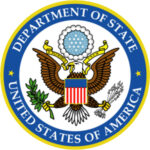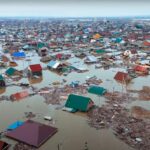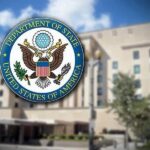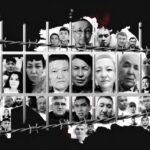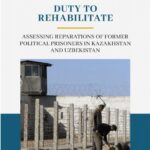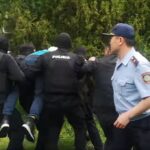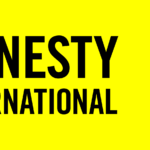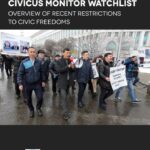Kazakhstan is a destination and to a lesser extent, source and transit country for women and girls subjected to sex trafficking and for men, women, and children subjected to forced labor. There is also a large trafficking problem within the country. Kazakhstani women and children are subjected to sex trafficking in the United Arab Emirates and Lebanon, and to a lesser extent, in Russia, China, Turkey, and Azerbaijan. Women and girls from Uzbekistan, Russia, Kyrgyzstan, Tajikistan, Moldova, and Ukraine are subjected to sex trafficking in Kazakhstan. Women and girls from rural Kazakhstan are subject to sex trafficking in urban areas of the country. Kazakhstani men, women, and children as well as men and children from Uzbekistan, Kyrgyzstan, China, Turkmenistan, Tajikistan, Mongolia, and Nigeria are subjected to conditions of forced labor in domestic service, cattle breeding, and pasturing, and also in the harvest of agricultural products in Kazakhstan. Civil society groups continued to report a significant reduction in the use of forced labor in the tobacco harvest, in large part due to the efforts of a private company and a gradual phasing out of the tobacco industry in Kazakhstan. NGOs report sporadic cases of children who are forced to beg. Traffickers commonly confiscated victims’ identity documents, prohibited victims’ freedom of movement, and isolated victims. Traffickers often used inflated debts, justified by purported costs in “purchasing,” housing, or transporting the migrant workers to coerce them to work.
The Government of Kazakhstan does not fully comply with the minimum standards for the elimination of trafficking; however, it is making significant efforts to do so. The government maintained its law enforcement efforts against human trafficking, including by training law enforcement officials. However, it failed to screen migrants effectively to identify potential victims of trafficking and only identified two foreign victims of labor trafficking, despite being a significant destination country for foreign victims of forced labor. Official complicity in trafficking remained a serious but unaddressed problem.
Recommendations for Kazakhstan: Increase efforts to identify foreign victims of both forced labor and forced prostitution, including by ensuring that authorities make efforts to proactively identify victims of forced labor among those detained during immigration raids and refer those identified as victims for assistance; work to ensure that foreign victims of trafficking receive assistance; investigate and prosecute police officers suspected of complicity in trafficking; continue to increase the number of victims who receive government-funded assistance by increasing funding to anti-trafficking NGOs and establishing trafficking shelters; promptly provide foreign trafficking victims with their identity documents, in order to facilitate repatriation of those who choose to return to their countries of origin; continue to strengthen the capacity of police, prosecutors, and judges to investigate, prosecute, and adjudicate trafficking cases; and introduce professional ethics training for police officers in order to foster a culture of empathy for and assistance to trafficking victims.
Prosecution
The Government of Kazakhstan maintained modest progress in its anti-trafficking law enforcement efforts during the reporting period, but did not address official complicity in trafficking. Kazakhstan prohibits trafficking in persons for both labor and sexual exploitation through Articles 128, 133, 125(3b), 126(3b), 270, and 132-1 of its penal code, which prescribe penalties of up to 15 years’ imprisonment – penalties sufficiently stringent and commensurate with those prescribed for other serious crimes, such as rape. Police investigated 111 trafficking cases in 2011, compared with 88 investigations in 2010. Authorities prosecuted 82 cases in 2011, an increase from 48 cases prosecuted in 2010. A total of 30 trafficking offenders were convicted in 2011, compared with 32 offenders convicted in 2010. The government convicted 26 offenders for sex trafficking offences in 2011, a decrease from 29 convictions in 2010, and convicted four offenders for forced labor offences in 2011, compared with three in 2010. Four convicted traffickers received conditional sentences and two others were penalized with substantial fines. Sentences for the remaining 24 offenders ranged from two to 17 years’ imprisonment, in addition to the confiscation of their assets.
The government provided specialized training courses in the recognition, investigation, and prosecution of trafficking crimes for police, prosecutors, and judges through the Training Centers of the Office of the Procurator General, the Supreme Court, and the Karaganda Legal Academy’s Trafficking in Persons Training Center, and funded police participation in anti-trafficking events in four countries. Police jointly investigated seven trafficking cases with officials from five countries. Some trafficking victims complained that police officers did not take their assertions of being trafficked seriously. Some trafficking victims also complained that individual police officers were complicit in trafficking, including by protecting traffickers and raping trafficking victims, and that some officers facilitated trafficking by bringing girls to brothels. However, the government did not report any investigations or prosecutions of government officials or police officers suspected of complicity in trafficking.
Protection
The Government of Kazakhstan maintained its modest efforts in protecting trafficking victims in 2011; however, the government identified only two foreign labor trafficking victims, despite being a recognized destination for foreign victims of forced labor. Although migration police reported screening undocumented migrants detained during immigration raids, these efforts did not result in the identification of any trafficking victims. In 2011, thousands of migrants were deported without being screened for potential victims of trafficking. Government officials had a formal system to guide officials in the proactive identification of trafficking victims among the at-risk people they may encounter, but there was no information about how many trafficking victims were identified using these procedures. Identified victims were not punished for unlawful acts committed as a direct result of being trafficked, though victims not identified by authorities may have been deported or prosecuted for immigration or other violations, and some child sex trafficking victims were placed in detention centers. In 2011, the government identified 84 victims of trafficking, including 13 victims of forced labor, compared with 83 victims of trafficking – 13 of whom were also labor trafficking victims – identified in 2010. Of those identified in 2011, six were foreigners – including two victims of forced labor – a decrease from nine foreign victims identified in 2010. Police referred 68 trafficking victims to IOM for assistance. The government provided at least the equivalent of $42,000 in funding for the provision of food, shelter, clothing, transportation, and other services for all identified victims. In total, 141 trafficking victims, 74 of whom were victims of forced labor, were identified and assisted by IOM, privately funded NGOs, and government-funded programs in 2011. The government continued to fund fully one NGO-run shelter for trafficking victims. The local government of Almaty no longer funds another NGO-shelter, as it did in the previous year. The government has not, despite stated intentions, established trafficking shelters beyond the government-funded shelter in Astana. This has been due in large part to the lack of a policy that establishes shelter standards; the government is currently developing such standards. Shelters are open to all trafficking victims and provide legal, psychological, and medical assistance. However, some foreign victims of trafficking are unable to get access to medical assistance due to a lack of identification documents, health insurance, or temporary residency permits. Adult trafficking victims were permitted to enter and leave the shelters freely. The Ministries of Justice and Interior operated two counter-trafficking hotlines; five criminal cases were investigated in 2011 based on phone calls to these hotlines. There was no information as to whether any victim received government compensation, as envisioned by a regulation adopted in 2010 permitting victims to receive compensation from the government. The government encouraged all victims to participate in investigations and prosecutions by providing witness protection during court proceedings and access to pre-trial shelter services. The government did not report how many trafficking victims cooperated in investigations and prosecutions in 2011. Foreign victims who agreed to cooperate with law enforcement were requested to remain in Kazakhstan for the duration of the criminal investigation but were not permitted to work. The government did not report how many foreign victims received temporary residence permits in 2011. The government did not offer other legal alternatives to foreign victims’ removal to countries where they faced retribution or hardship; all victims were forcibly repatriated, either after a short recuperation period or after their service as a prosecution witness was completed.
Prevention
The government continued its prevention efforts during the reporting period. The Interagency Trafficking in Persons Working Group, chaired by the Minister of Justice, met quarterly; each responsible agency reported on its anti-trafficking activities assigned under the Trafficking in Persons National Plan. The national government supported some anti-trafficking efforts, including information and educational campaigns. The government also co-funded or provided in-kind contributions to activities organized by NGOs or international organizations, such as the posting of billboards advertising anti-trafficking hotlines. NGOs also received grants from the government to implement prevention activities. The government continued to provide in-kind contributions for a program designed to reduce the demand for commercial sex acts. In 2011, the government completed implementation of its National Trafficking in Persons Plan for 2009-2011 and adopted the new National Trafficking in Persons Plan for 2012-2014. The government failed to implement one task of the 2009-2011 plan concerning development of standards for shelter assistance; the new plan rectifies this by assigning responsible agencies to develop the standards.
SOURCE:
www.state.gov/j/tip/rls/tiprpt/2012/192367.htm


